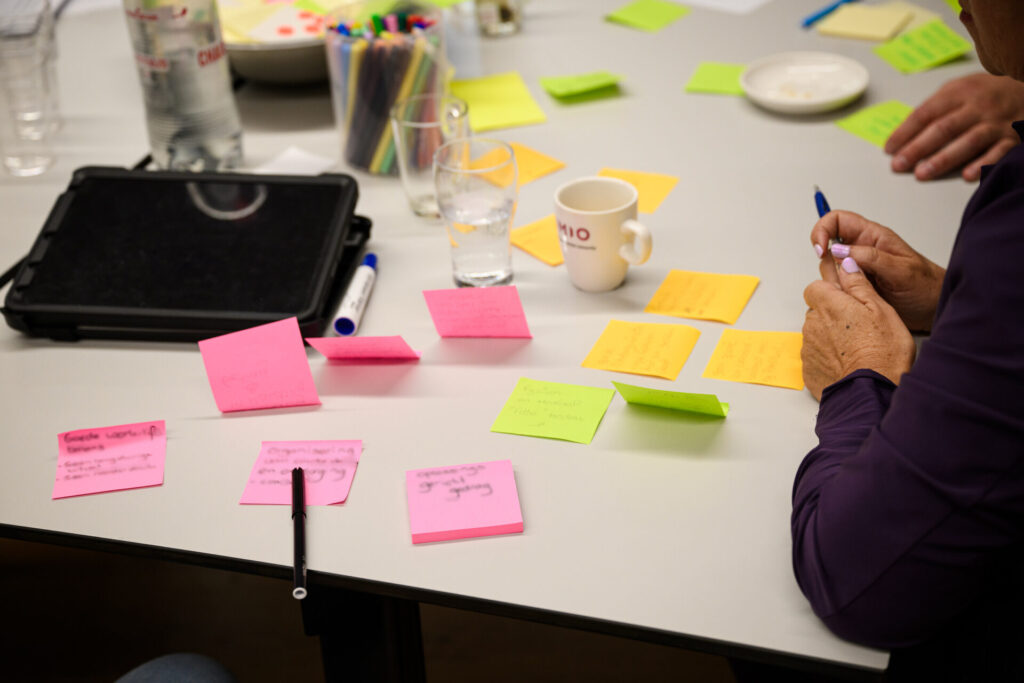Organisations in the health and social care sector face complex challenges such as staff shortages, an ageing population, and rising costs, but they often attempt to address these with short-term measures. How can you break free from these patterns and work toward structural renewal? Carmen Vonken, Innovation Lead at UMIO and lecturer in the Transformation in Health and Social Care programme, shares her insights.
“Organisations in the health and social care sector often come up with short-term solutions, such as temporarily deploying additional staff or adjusting schedules, because there is a strong pressure to deliver immediate results,” Carmen explains. “That seems logical, but many of the problems organisations face are complex: staff shortages, increasing patient numbers due to an ageing population, rising costs, and growing administrative burdens reinforce one another and do not have a simple cause or solution.”
Such complex problems have multiple, intertwined causes and constantly evolve under the influence of societal developments, policy, and the local context. Breaking these patterns requires a different perspective on them.
“That is why it is important for organisations to adopt a holistic perspective and analyse problems in their interconnectedness rather than continuing to focus on symptom management,” Carmen explains. “Thinking from an ecosystem perspective helps here, collaborating with other partners such as municipalities, educational institutions, and welfare organisations, because many of these challenges cannot be solved by a single organisation.”
Design Thinking as a practical entry point
Design Thinking offers a practical approach to systematically and creatively exploring complex problems from the perspective of clients, employees, and chain partners.
“By analysing challenges together with others, generating ideas, and testing them on a small scale, space is created to develop innovative futures instead of repeating short-term solutions,” says Carmen.
In the Transformation in Health and Social Care programme, professionals actively work with this approach. “Together, we explore why, in practice, we often continue to invest in short-term solutions, even when we know they do not structurally resolve the problems,” Carmen says. “You discover which mechanisms and beliefs—such as the pressure to show immediate results, funding systems, ingrained routines, and uncertainty about the unknown—hold us back as professionals and organisations from truly developing innovative futures. We also examine what prevents us from thinking and acting beyond existing patterns and structures, and how you, as a professional, can become aware of these pitfalls and barriers.”

Thinking freely and looking systemically
At the same time, participants work on developing new perspectives on the future of health and social care, across organisational boundaries.
“We explore what the world of health and social care could ideally look like, what radical innovations might be possible, and what is needed to work toward these step by step,” Carmen explains. “In this way, you experience what it is like to think freely, be creative, and simultaneously look at systems, so that after the program you are better equipped to realise sustainable change in a sector where complexity is high and the need for transformation is urgent.”
The Transformation in Health and Social Care programme will commence on 18 September 2025 in Maastricht and will run for 1.5 years. Enrollment for this programme is still open. Would you like to know more? Feel free to contact Carmen; she would be happy to discuss your questions with you.



